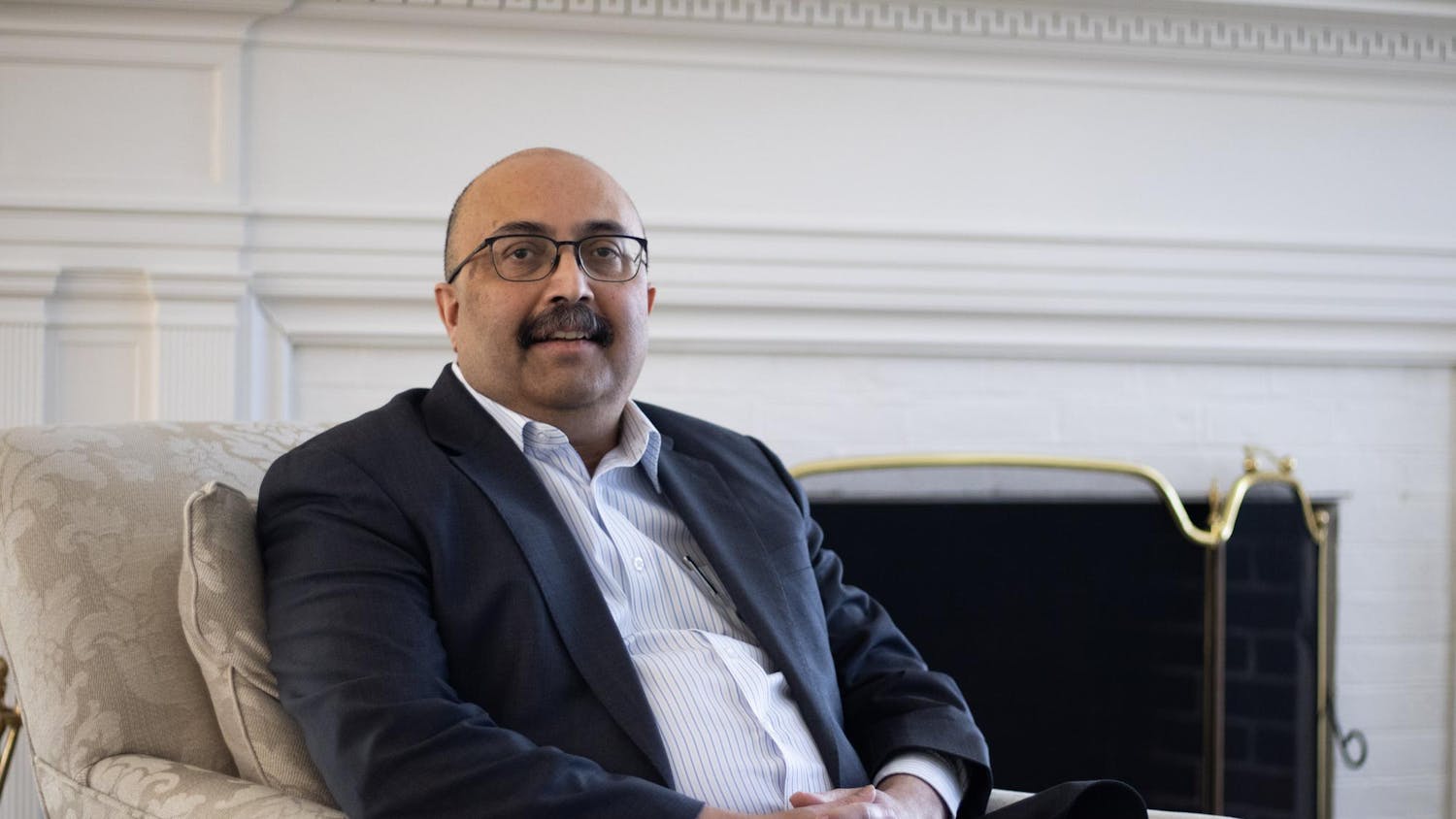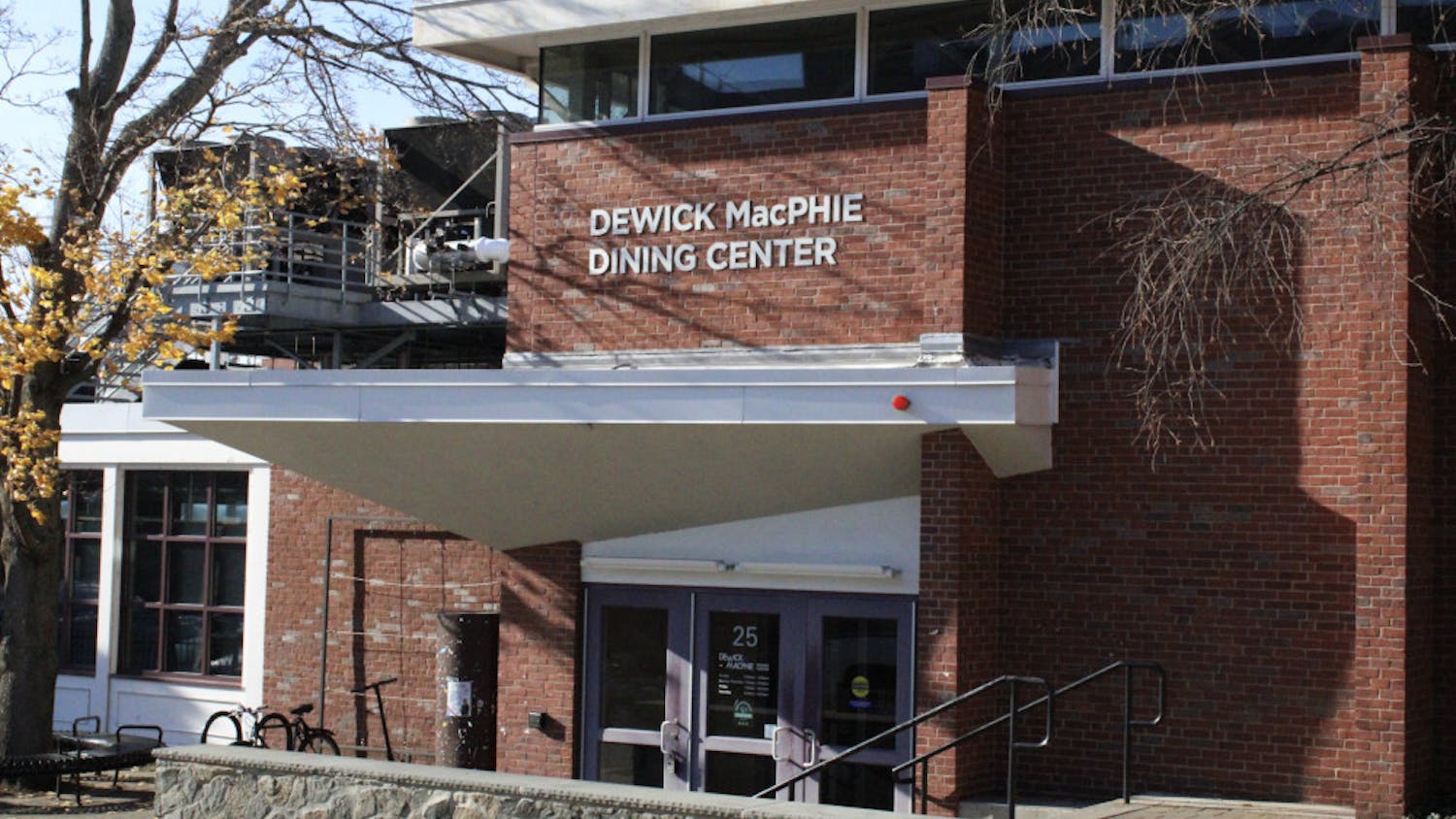The Interfraternity Council (IFC) voted not to bring the fraternity Pi Kappa Phi into the Tufts Greek community at this time after an hour-long deliberation last Wednesday.
“Until we make progress in [inclusivity] and continue to grow in terms of safety and responsibility, the IFC executive board did not feel comfortable in welcoming Pi Kappa Phi at this time,” IFC President Rob Jacobson told the Daily in an email. “Our primary goal is to allow the Greek community to focus on the issues and challenges that are still in front of us, and to continue to evolve and improve what already exists before we extend [an invitation for] a new organization to join us.”
The IFC, which represents the 10 national and local fraternities on campus, promotes safety and education in fraternity affairs, according to the Office of Fraternity and Sorority Life website.
According to Jacobson, a senior, the decision was made by the five elected student officials of the current IFC executive board, who assessed the pros and cons of establishing a Tufts chapter of Pi Kappa Phi. Jacobson said he also spoke with fraternity presidents, other Greek community members and the students who were interested in a new fraternity to help assess the situation.
Jacobson said there is still a strong possibility that Pi Kappa Phi will join Tufts' Greek life at the start of 2016's fall semester after the board reevaluates its decision at the end of the academic year.
“We are expressing interest to Pi Kappa Phi that the current [IFC] executive board would like to reevaluate the decision at the end of the spring semester, and if the IFC feels that we have made progress on our goals by then, we hope to extend Pi Kappa Phi an invitation to join us in the fall,” Jacobson said.
IFC Vice President Alexander Spring said the decision to deny Pi Kappa Phi permission to organize on campus had nothing to do with the fraternity itself.
"We really had no cons for welcoming Pi Kappa Phi specifically," Spring, a junior, told the Daily in an email. "Our cons were focused on the general idea of expansion at the current time."
Spring, who is also the co-founder and the newly-elected president of Pi Delta, explained that Tufts is one of the few remaining schools within the New England Small College Athletic Conference (NESCAC) with an active Greek system. Other NESCAC schools such as Trinity College, Wesleyan University and Hamilton College have campus Greek life, but fraternities have been banned at all the other NESCAC schools, such as Amherst College, according to their websites.
"This means [Tufts fraternities] are held to a high standard and need to operate as such," Spring said.
The process of possibly introducing Pi Kappa Phi began at the start of the semester, when a few students were interested in having a new fraternity at Tufts, according to Jacobson. Two national organizations, Pi Kappa Phi and Beta Theta Pi, were interested in founding a chapter at Tufts and were invited to visit the campus, he said.
“The purpose of the visits was to get a feel for each organization and how they could contribute to and fit in with the Tufts community, as well as for them to get a sense of the Tufts community as a whole,” Jacobson said.
During their Nov. 4 visit to Tufts, Pi Kappa Phi representatives made an open presentation to the IFC, met with Director of Fraternity and Sorority Life Su McGlone and went to dinner with the IFC executive board, according to Jacobson. Beta Theta Pi withdrew their interest at the last minute, which is why only Pi Kappa Phi was considered during Wednesday's IFC meeting, he said.
Jacobson said that the IFC decision reflects the council's current goals to promote a positive conception of Greek life at Tufts.
“The IFC has made strides to change the fabric of the Tufts community in a positive way,” Jacobson said.
Spring said the council is addressing specific issues such as financial aid and inclusivity, and hopes to make those plans concrete during the spring semester.
These efforts include the recent launching of the Risk Management Assistance Team (RMAT), a team of volunteer sober-monitors trained to maintain safety at fraternity events.
“Now that we have gained momentum in changing the attitudes surrounding Greek life, the IFC executive board wants to expand our existing frontiers this spring, starting with recruitment,” Jacobson said.
There will be an emphasis from both the IFC and the fraternities themselves to ensure that fraternities are “inclusive organizations who are seeking members from all backgrounds,” according to Jacobson.
The IFC's decision on Pi Kappa Phi also follows many recent organizational changes in Greek life; earlier this year, Alpha Epsilon Pi reorganized under the name Pi Delta and in November, Sigma Phi Epsilon -- now known as 92 -- chose to disaffiliate from their national organization.
“Greek culture is changing and evolving in a way that can only happen in the environment that Tufts provides,” Jacobson said. “Thoughtful students are reflecting not only on their organizations, but also themselves and on the values they want to project to the world. In the case of Pi Delta and 92, the values of the students no longer completely aligned with their national organizations, so we’ve seen both make the decision to stand on their own.”
Spring encouraged students who were originally interested in starting a new fraternity to rush current fraternities next semester.
"We have nine fraternities on this campus, each with their own community and feel," Spring said. "I would hope that if those students were still interested in Greek life, that they would try to rush as many houses as possible."
Despite their decision, Jacobson explained that IFC members left the meeting with a favorable opinion of Pi Kappa Phi.
“[We] got a great sense of the organization, and found ourselves very impressed with [Pi Kappa Phi's] emphasis on leadership and philanthropy," he said. "We felt strongly that their national reputation, in conjunction with their vision for a chapter at Tufts, was a great fit.”
He added that Pi Kappa Phi will be a top choice for future fraternity expansion at Tufts.
“When we do expand, Pi Kappa Phi will certainly be our first choice," he said. "They are a quality organization and have the potential to enhance the experience of many budding student leaders on campus.”
More from The Tufts Daily
Q&A: President Kumar discusses Beyond 175 plan
By
Julian Glickman and Josué Pérez
| February 2
TCU Senate implements new dining feedback survey
By
Alex Boyle and Dariush Raissi
| February 2





